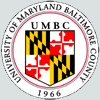| |||||||||||||||||||
Tips:  Range on the Protein: Protein ID Protein Position Domain Position: 
|
|---|
Weblogos are Copyright (c) 2002 Regents of the University of California
| DMDM_info@umbc.edu | 1000 Hilltop Circle, Baltimore, MD 21250 | Department of Biological Sciences | Phone: 410-455-2258 |




 Ribosomal protein S12-like family; composed of prokaryotic 30S ribosomal protein S12, eukaryotic 40S ribosomal protein S23 and similar proteins. S12 and S23 are located at the interface of the large and small ribosomal subunits, adjacent to the decoding center. They play an important role in translocation during the peptide elongation step of protein synthesis. They are also involved in important RNA and protein interactions. Ribosomal protein S12 is essential for maintenance of a pretranslocation state and, together with S13, functions as a control element for the rRNA- and tRNA-driven movements of translocation. S23 interacts with domain III of the eukaryotic elongation factor 2 (eEF2), which catalyzes translocation. Mutations in S12 and S23 have been found to affect translational accuracy. Antibiotics such as streptomycin may also bind S12/S23 and cause the ribosome to misread the genetic code.
Ribosomal protein S12-like family; composed of prokaryotic 30S ribosomal protein S12, eukaryotic 40S ribosomal protein S23 and similar proteins. S12 and S23 are located at the interface of the large and small ribosomal subunits, adjacent to the decoding center. They play an important role in translocation during the peptide elongation step of protein synthesis. They are also involved in important RNA and protein interactions. Ribosomal protein S12 is essential for maintenance of a pretranslocation state and, together with S13, functions as a control element for the rRNA- and tRNA-driven movements of translocation. S23 interacts with domain III of the eukaryotic elongation factor 2 (eEF2), which catalyzes translocation. Mutations in S12 and S23 have been found to affect translational accuracy. Antibiotics such as streptomycin may also bind S12/S23 and cause the ribosome to misread the genetic code. No pairwise interactions are available for this conserved domain.
No pairwise interactions are available for this conserved domain.







